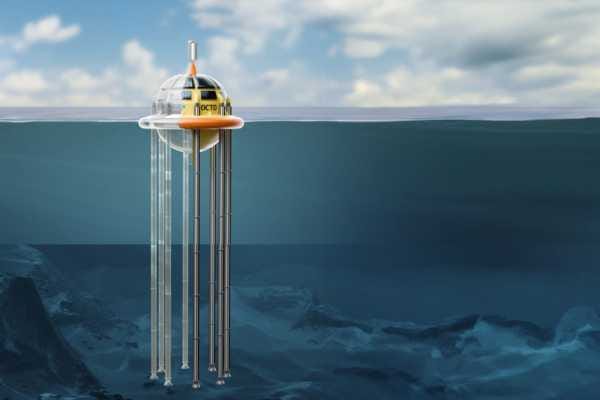Wave-powered oPod takes the plunge
They look like octopuses but work like whales – and are pioneering a new era of ocean conservation.

When cold, nutrient-rich currents come into contact with warm, sunny currents, a vertical flow of water called an upwelling is created that provides the necessities of ocean life.
Brisbane company Blue Carbon is working on a solution that harnesses this natural process. The oPod, short for OctoPod, has been designed to “restart the heart of the ocean”, according to its creator.
Powered by waves, cold nutrient-rich water is pumped up from the deep by oPod’s ‘tentacles’ to the surface which locks away carbon by rejuvenating marine environments.
“Our oPods may look like octopuses, but they work like whales - pioneering a new era of ocean conservation and regeneration,” Blue Carbon says.
Restoring ocean ecosystems is one of the most effective and natural solutions for carbon capture, according to the Australian Marine Conservation Society.
Repairing nature
As Blue Carbon CEO and founder Dr Ana Novak recently wrote, however, it’s only in select areas making up a tiny fraction of the ocean where the vast majority of marine life originates and flourishes.
“Coral reefs make up 0.1% of the ocean by surface, but are home to 25% of marine species. They’re extraordinarily fertile, similar to rainforests in productivity," she wrote. "If we can restore them, and in a way, replicate them, the results will be extraordinary.”
To this end, tethered oPods bring cool water directly to an oPod 'sprinkler' at the reef, where it’s distributed in the same way that irrigation brings life to the desert.
This cool water can lower spikes in temperature and balance the conditions needed to restore the growth of coral ecosystems.
The company recently completed five ocean trials, with the final one last year designed to test how effectively the oPod could bring nutrients to the surface, resulting in a 364% increase in local nutrient levels according to the company.
“We also recorded a decrease in local water temperature, caused by bringing up water eight degrees centigrade cooler than the local water," Blue Carbon says. “We hope that bringing up cooler water around coral reefs will protect them from ocean warming spikes and prevent coral bleaching.”
"We aim to show that our wave-powered oPods can successfully substitute diesel-powered devices, which would be a major breakthrough. This is a key step in our R&D journey as we head to commercialisation."
oPods also have application in aquaculture, according to Blue Carbon. Bringing cold, oxygenated water to aquaculture pens removes the need for diesel-powered generators and the technology can also form a base for ecosystem-enhanced wild catch fisheries.
Blue Carbon has partnered with Tasmanian Atlantic salmon producer Tassal to test its tech with this in mind. “The test will see how our prototype integrates with aquaculture systems, bringing cool water to pens,” a Blue Carbon company spokesperson told TheZeroPlanet.
“We aim to show that our wave-powered oPods can successfully substitute diesel-powered devices, which would be a major breakthrough. This is a key step in our R&D journey as we head to commercialisation.”
And because oPods are equipped with sensors to measure and record ocean health, they could also form a global network offering ocean intelligence for marine scientists.
Cold nutrient-rich water is pumped up from the deep by oPod using wave power. It replicates the ocean’s natural vertical circulation, with phosphates, iron and nitrates brought to the surface helping phytoplankton bloom and capture carbon quickly. This also kickstarts the food chain that restores marine ecosystems. Blue Carbon says the oPods can be customised for marine science, marine industries and reef restoration, repairing them over time. The oPods also carry sensors to collect, process and respond to real-time data.





